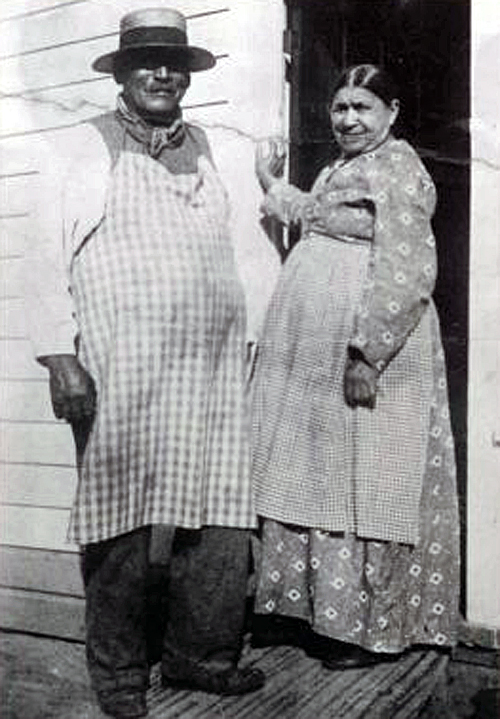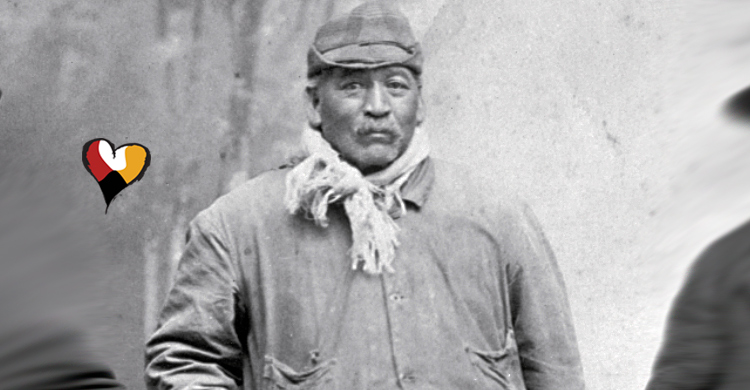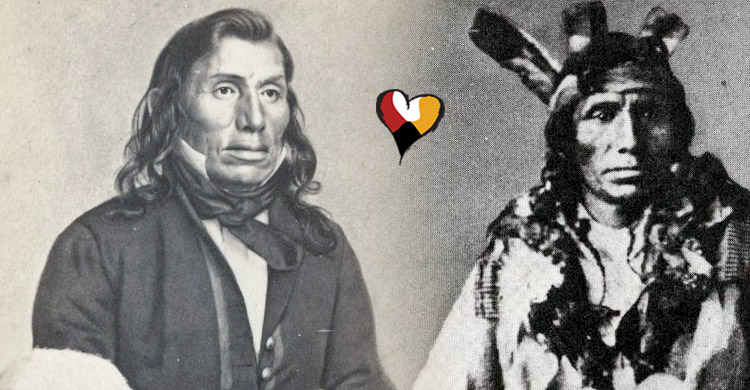Honoring potato chips inventor George Crum, born George Speck (1828 – 1914) of African and Native American Indian ancestry.
Every time a person crunches into a potato chip, he or she is enjoying the delicious taste of one of the world’s most famous snacks – a treat that might not exist without the contribution of Afro Native American inventor(s) George Crum and his sister Catherine Speck Wicks.
George Crum was working as a chef in the summer of 1853 when he incidentally invented the potato chip with the assistance of his sister Catherine Speck Wicks. George Speck “Crum” and Catherine “Kate” Speck Wicks were born to Abraham and Catherine Speck.
Anthropologist, historian, and museum consultant Margaret M. Bruchac believe that George Speck and his sister Catherine Speck Wicks both identified as members of the St. Regis Mohawk tribe. George Speck is believed to be the son of a Black father and a Native American Indian mother. He also used the name Crum (George Crum), as his father did while a jockey.
Most stories say that George Speck aka George Crum spent his youth as a guide in the Adirondack Mountains of New York, and by 1953, he was working for Cary Moon at Moon’s Lake House.
It all began when a patron who ordered a plate of French-fried potatoes sent them back to George Crum’s kitchen because he felt they were too thick and soft. To teach the picky patron a lesson, Crum sliced a new batch of potatoes as thin as he possibly could, and then fried them until they were hard and crunchy.
Finally, to top them off, he added a generous heaping of salt. To Crum’s surprise, the dish ended up being a hit with the patron and a new snack was born!
In 1860 George Speck “Crum” purchased a building on Malta Avenue near Saratoga Lake, NY and within a few years was catering to wealthy clients including William Vanderbilt, Cornelius Vanderbilt, Jay Gould, and Henry Hilton.
A basket of potato chips was placed on every table. Though George Crum never attempted to patent his potato chip invention, the snack was eventually mass-produced, sold in bag without giving any credits to the real potato chip inventor(s) George Speck Crum and/or his sister Catherine Speck Wicks.

George Crum Speck and his sister Catherine Speck Wicks
MILESTONE
- 1853 George Crum invents the Saratoga Chip, a thin French fry, now known as the potato chip.
- 1860 George Crum opened his own restaurant, featuring potato chips in a basket placed on every table.
- 1895 William Tappendon of Cleveland, Ohio begins selling potato chips as food in grocery stores.
- 1908 Leominster Potato Chip Co., Leominster, MA (later changed the name to Tri-Sum)
- 1910 Mikesell’s Potato Chips, Dayton, Ohio.
- 1910 George Dentler, Houston, Texas.
- 1913 Dan Dee Pretzel and Potato Chip Company, Cleveland, Ohio.
- 1918 Num Num, Cleveland, Ohio
- 1919 Blue Bell – Illinois
- 1921 Wise Delicatessen Company, Berwick, Pennsylvania.
- 1921 Utz – Hanover, Pennsylvania. started as the Hanover Home Brand Potato Chips
- 1921 Magic Food Co, later Golden Flake*, Birmingham, Alabama.
- 1924 Moore’s, Bristol, Virginia.
- 1926 Scudder’s – Monterey Park, California
- 1930 Better Made – Detroit, Michigan
- 1932 Lay’s – founded by Herman Lay of Nashville, Tennessee
Note: Afro Native American or African Native American? People who call themselves “Black Indians” are people living in America of African-American descent, with significant heritage of Native American Indian ancestry, and with strong connections to Indian Country and its Native American Indian culture, social, and historical traditions. Black Indians are also called Afro Native American people, Black American Indians, Black Native Americans and Afro Native. Connecting with our ancestors.
SOURCE: Based on materials from ideafinder.com and brooksidemuseum.org






